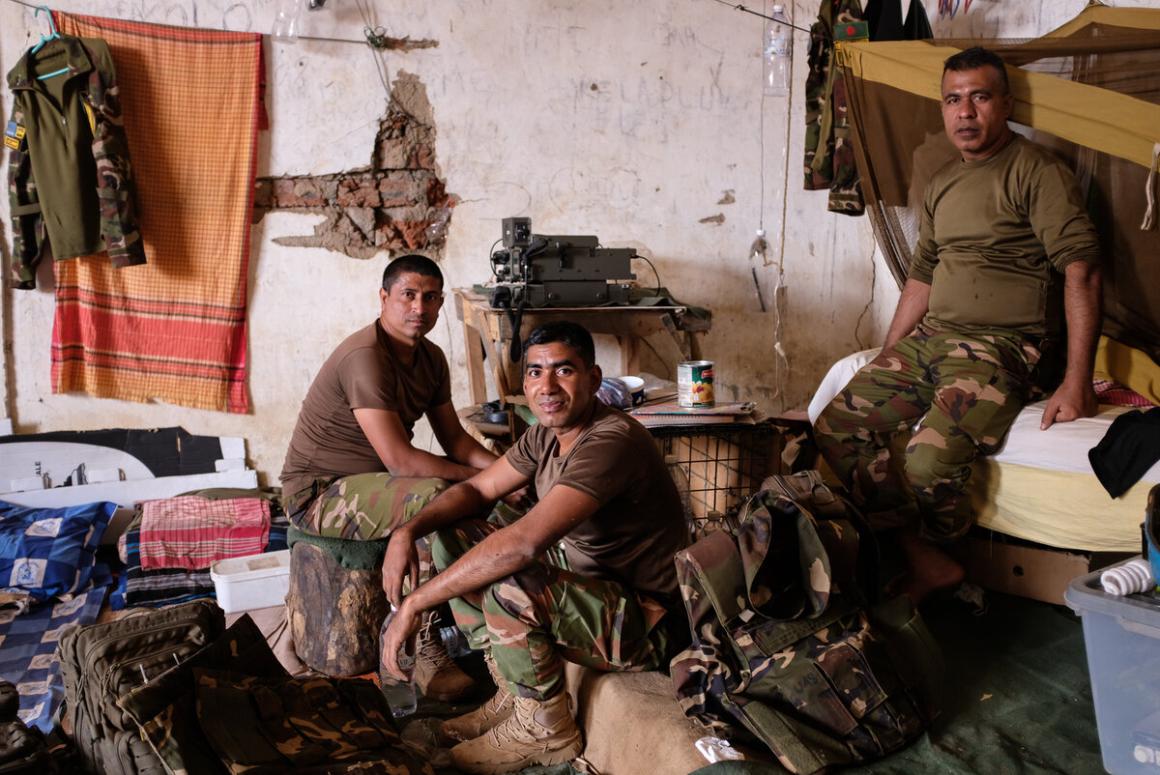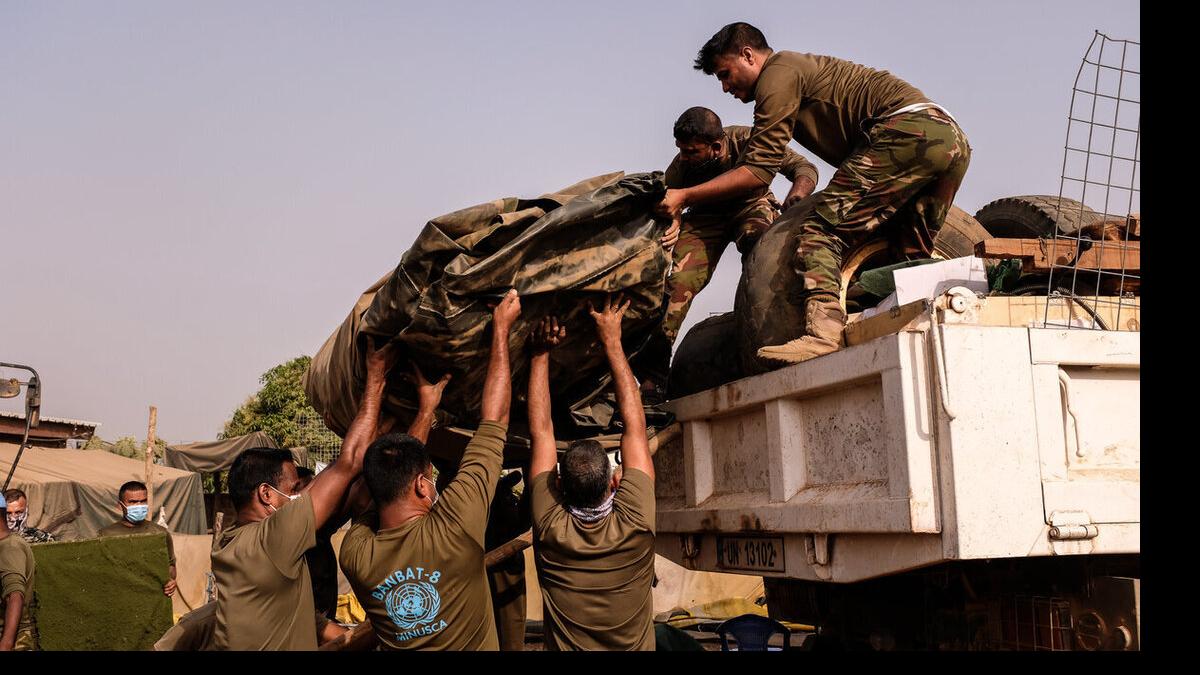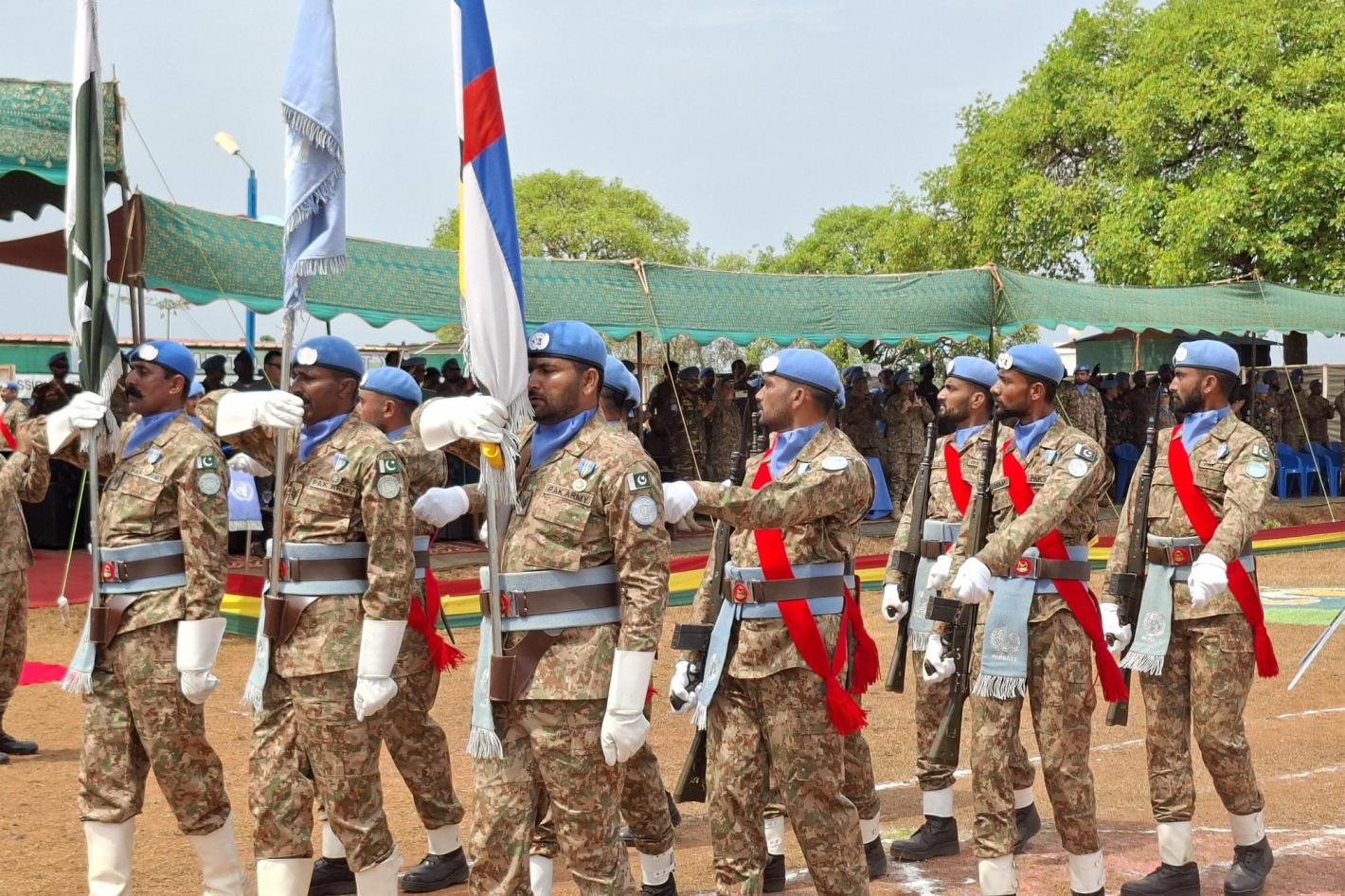Deep, in the northwest of the Central African Republic, a mere 5 kilometers from the international border with Cameroun and less than 2 kilometers from Chad, the temporary operational base (TOB) of Bang is living its last hours. The 57 peacekeepers from the Bangladesh Battalion (BANBAT), who have been rotated here for the past five years, are tasked with handing over the base to the national authority.
Bang is an ordinary simple Central-African town with its customs house, a small city center with some stores, and many official buildings still riddled with with bullet and mortar impacts, a reminder of the many incursions of armed groups, which are still present in the area and moving through the transhumance corridors.
The whole population know that the base is closing. Neither hard feelings nor animosity – as it often is the case when troops are pulling out – but a great disappointment, a feeling of abandon, despite the short distance between Bang and the main base in Bocaranga or the TOB of Ndim. Sadness however is quickly replaced by smiles, even laughter, when children walk to school from 7:30 am, past the makeshift guard towner, singing in French “My Friend”, to say hi or to try to get an empty bottle of water from the soldiers. “As Bangladeshi soldiers, we are very touched by these sweet children who come to us. We think about our own children, and it is hard not to give more… but we must respect orders” says Corporal M. whom children call by his name. The TOB is located in the middle of a populated district of the town, the local youths know the soldiers and their NCOs by name.
Although they belong to various units, mostly infantry, the men of Bang TOB are an homogenous group, donning the new uniforms symbolizing the modernization of the Bangladeshi Army. Combat blouses and trousers are flawless, a sign of the level of discipline of the BANBAT. Living in an old warehouse transformed into a dormitory, the peacekeepers are following a strict schedule cadenced by orders, prayers, and meals. All are working under the watchful eye of their Senior Warrant Officer (SWO), J. His imposing stature, a face sculpted by years in the army, firm in the task he gives to his men give him a fatherly role in the base. Despite his rank giving him access to more comfort, he chooses to share the same bedding and showers as his men. At night, in this makeshift dormitory – the walls covered with graffiti made by Central-African soldiers and members of armed group who successively occupied the building, a sad reminder of the history of the country - the troops and their SWO J. gather around a small TV set and to watch movies from their home country, each through theor own mosquito net.
To stay in touch with home is a daily struggle for the descendants of the “Bengal Sepoy” but they are full of ingenuity and apply the technics learnt in the Chittagong Hill Tracks, where all soldiers must serve multiple tours of duty. At each corner of the base, metal poles have been erected, empty bottles of water hanging from them. These are cut sideways so soldiers can slide their smartphones in, morning and evening, to get some network and use them as hotspots for everyone. This basic system was set in place by the Communication NCO, who checks the network multiple times a day, not only for the welfare it provides the soldiers but also because it is the only mean of communications with the sector and the company.
Major. M. has been leading the TOB only for a few months. Still, he has the difficult task to ensure the base is closed without incident. Tall and athletic, this man of action command an amphibious mechanized company. Despite his feat of arms back home, the Major is a quiet and humble man and his composure is appreciated by both his troops and the local authorities. In a short amount of time, he managed to build trust with the national army (FACA), demonstrating a true implementation of MINUSCA’s mandate through joint patrols, regular security meetings, or casual meetings around a meal. This collaboration has had a direct impact on the situation, significantly reducing the number of violations of the Status of Force Agreement (SOFA), the document signed by both the United Nations and the Central African Republic which enables the peacekeeping mission to operate. Major M. is deputed by another officer, who graduated from the military academy one year after him, Major Ma., and by an interpreter, Captain. A.. This trio are inseparable in the camp and in the field.

Captain A. is a young civilian under contract, not a soldier despite his rank and uniform. While he must adapt to military life, he rapidly assumed the role of Liaison Officer thanks to his knowledge of French and his ability to translate to Bangla for confidentiality purposes. Every day, with or without an armed escort, Capt. A. meets with the authorities, the school headmaster, and introduces himself in Sango. Those few words, a mark of sympathy and respect, is greatly appreciated and those daily conversations are a great source of information on the local needs. In less than a couple months, he managed to get to know everyone, including the Sub-Prefect of Ngaoundaye, Jean-Ulrich Sepayengba, who made the choice to settle in Bang, far from the privileges devolved to his office.
Mr. Sepayengba is known for his steadfastness, but mostly for his conciliation abilities. In 2019, as Sub-Prefect of Batangafo, he managed to get a local peace agreement between Anti-balakas and Ex-Seleka signed, before the Political Agreement for Peace and Reconciliation (APPR-RCA) came into fruition. A hands-on stateman, he speaks frankly about the mixed feelings he has regarding the TOB closure: “I must admit, I am disappointed by the departure of MINUSCA, from an area where the humanitarian needs and the protection of civilians are dire. But the handover of a government property is a clear sign of the return of state authority. In our sub-prefecture, all state agencies and services have a representative. We just welcomed an officer from the Water and Forest Affairs” he concluded.
As dusk obscures the sky, clouds of dust hang over the camp. Walkies-talkies crackle from the watch tower. The main tent, once the camp Mosque, has just been dismantled. Prayer mats have been carefully set outside, where the last prayer before the departure will be conducted; tonight. Under a heavy sky, with the few remote houses on the horizon marking the place where the bush begins, three flags are flown in front of the TOB: the flag of the United Nations sits between the Jatiyo Potaka of Bangladesh, and the Bendere Ti Beafrica of the Central African Republic. An alliance of colors which carried so much symbolic for Bang.
At dawn, the white armored vehicles of Major M. and the men of SWO J. drive down the main red and dusty road. The last formalities have just been completed by the civilian staff of MINUSCA, who came for this purpose. The whole party is already ready to come back and implement the mandate and bring protection to the population and assist the local authorities.






